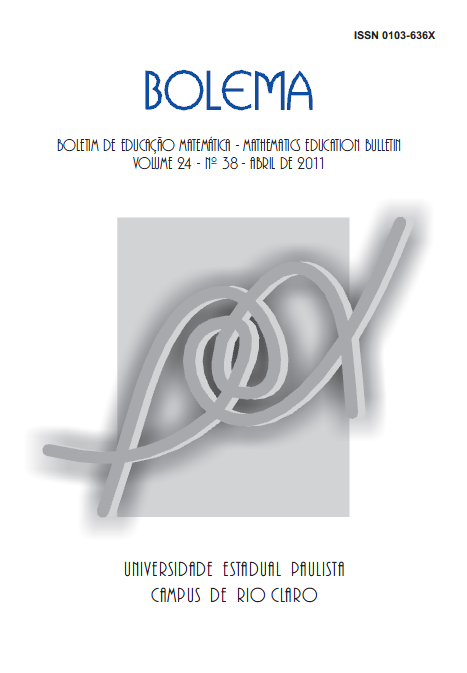Das Überraschende: Wittgenstein sobre o surpreendente em Matemática
Palavras-chave:
Wittgenstein. Filosofia da Matemática. Surpresa. Surpreendente.Resumo
Este ensaio argumenta que os conceitos de surpreendente, de interessante e a mudança do aspecto das coisas têm uma importância central, tanto para Wittgenstein quanto para a filosofia da matemática. Eles não precisam, sem perdas, ser psicologizados ou reduzidos para outros tipos de falar sobre a linguagem. Neste sentido, discuto Adam Smith, sobre o maravilhar, as observações de Wittgenstein sobre o teorema de Gödel em correspondência com Schlick e seus comentários sobre Hardy, e vários exemplos da história da matemática que se encaixam perfeitamente às idéias de Wittgenstein, incluindo a teoria dos quadrados latinos (envolvida no Sudoku, no famoso problema de Euler sobre os trinta e seis oficiais), que recebeu surpreendente rearticulação no decorrer do desenvolvimento da álgebra moderna e contemporânea. Estes exemplos evidenciam um sentimento perfeitamente em sintonia em que o surpreendente pode ser acomodado às nossas discussões sobre a matemática, sem forçar-nos a adotar quer seja o platonismo ou o anti-psicologismo de eliminação sobre os fenômenos em questão. A reestruturação conceitual envolvida aqui confirma a utilidade da abordagem de Wittgenstein para a investigação do surpreendente em matemática, que se recusa a interpretar essa noção como a descoberta de novos objetos ou fatos. Palavras-chave: Wittgenstein. Filosofia da Matemática. Surpresa. Surpreendente. Das Überraschende: Wittgenstein on the Surprising in Mathematics Abstract This essay argues that the concepts of the surprising, the interesting, and the change of aspect of things are centrally important, both for Wittgenstein and for the philosophy of mathematics. They need not be psychologized or reduced to other kinds of talk about language without loss. In this vein I discuss Adam Smith on wonder, Wittgenstein’s remarks about Gödel’s theorem in correspondence with Schlick and his remarks on Hardy, and several examples from the history of mathematics that fit nicely with Wittgenstein’s ideas, including the theory of Latin Squares (involved in Sudoku, in Euler’s famed problem concerning the thirty-six officers) which received surprising rearticulation in the course of the development of modern algebra and in contemporary discrete mathematics. These examples evince a perfectly good sense in which the surprising may be accommodated within our discussions of mathematics without forcing us to adopt either Platonism or eliminative anti-psychologism about the phenomena at issue. The conceptual reframings involved here confirm the usefulness of Wittgenstein’s approach to the investigation of surprise in mathematics, which resists construing the notion as everywhere indicating the discovery of new objects or facts. Keywords: Wittgenstein. Philosophy of Mathematics. Surprising.Downloads
Publicado
2011-05-22
Edição
Seção
ARTIGOS
Licença

>>>>> BOLEMA: Mathematics Education Bulletin = BOLEMA: Boletim de Educação Matemática, Rio Claro, SP, Brasil - eISSN 1980-4415 - está licenciado sob Licença Creative Commons


